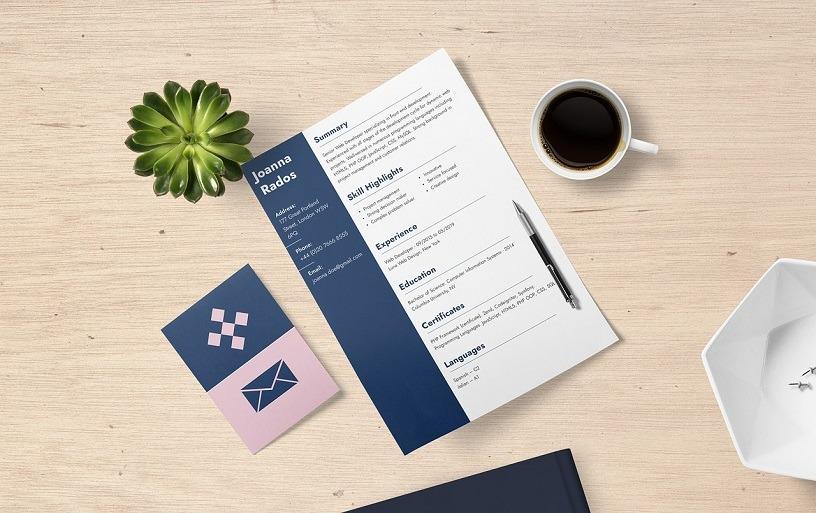10 Resume Writing Tips To Help You Land a Job

Discover 10 powerful resume writing tips to boost your job prospects. Craft an impressive resume for career success.
In today’s competitive job market, a well-crafted resume can make all the difference between landing your dream job and getting lost in the sea of applicants. Your resume serves as your first opportunity to impress potential employers and demonstrate your qualifications. To help you stand out and increase your chances of securing the job you desire, we’ve compiled ten essential resume writing tips. Whether you’re a recent graduate looking for your first job or a seasoned professional seeking a career change, these tips will guide you in creating a powerful and attention-grabbing resume that showcases your skills and experiences effectively. So, let’s dive into the art of resume writing and set you on the path to success in your job search.
- 1. Tailor Your Resume
- 2. Choose the Right Format
- 3. Place Your Contact Information Clearly
- 4. Include an Impactful summary or Objective
- 5. Highlight Achievements
- 6. Include Relevant Keywords
- 7. List Education and Certifications
- 8. Provide Details of Your Work Experience
- 9. Create a Dedicated Skills Section
- 10. Be Concise and Error-Free
10 Resume Writing Tips
In this article, we offer 10 tips to help you write an impressive resume.
1. Tailor Your Resume
Customizing your resume for each job application is a strategic approach that significantly enhances your chances of success. Start by carefully analyzing the job posting to identify specific skills, qualifications, and keywords sought by the employer. Tailor your resume by emphasizing relevant experiences, skills, and achievements that align with the job requirements. Adjust your summary or objective statement to reflect your interest in the specific role. This tailored approach demonstrates your genuine interest and increases your relevance as a candidate, setting you apart in a highly competitive job market.
2. Choose the Right Format
Choosing the right resume format is pivotal in showcasing your qualifications. Three main formats to consider are chronological, functional, and combination. Opt for the chronological format if your work history is consistent and you want to highlight your career progression. For those with employment gaps or transitioning careers, the functional format emphasizes skills and accomplishments. The combination format blends these, offering versatility. Your choice should align with your career goals and effectively display your strengths.
3. Place Your Contact Information Clearly
Incorporating your contact information in your resume is essential for employers to reach you. Place your full name, phone number, professional email address, and LinkedIn profile (if applicable) at the top of your document. Ensure your email address is professional and avoid using overly casual or unrelated handles. By providing this information clearly, you make it easy for prospective employers to connect with you and move forward in the hiring process.
4. Include an Impactful summary or Objective
Crafting an impactful summary or objective on your resume requires concision and clarity. A summary is a brief overview of your professional background and key achievements, while an objective states your career goals. Keep it concise, ideally two to three sentences. Focus on what you bring to the table or your aspirations. Tailor it to the job you’re applying for, highlighting how you can benefit the company. A compelling summary or objective provides employers with a quick insight into your qualifications and motivation.
5. Highlight Achievements
Highlighting achievements on your resume is crucial to catch an employer’s attention. Use bullet points to detail specific accomplishments in your previous roles, starting with strong action verbs. Focus on quantifiable achievements, such as increasing sales by a certain percentage or streamlining processes to save time and resources. Emphasize how your contributions positively impacted your previous employers. Tailor these achievements to match the job you’re applying for, showing the hiring manager that you have a track record of success in areas relevant to the position.
6. Include Relevant Keywords
Incorporating relevant keywords on your resume is essential in today’s digital job market. Study the job description and industry standards to identify specific keywords, skills, and phrases the employer values. Integrate these strategically into your resume, especially in the skills and work experience sections. This not only aligns your resume with the job’s requirements but also helps it pass through applicant tracking systems (ATS), increasing your chances of reaching the human eye. Balancing this with your unique qualifications and experiences is key to standing out while remaining in sync with the employer’s expectations.
7. List Education and Certifications
When listing your education and certifications on your resume, it’s important to provide clear, concise information. Start with your most recent educational achievements, including the institution’s name, degree or certification earned, major or field of study, and graduation date. If you have a significant number of certifications, create a separate section to highlight them. Mention any relevant coursework, honors, or awards. Additionally, only include information that is pertinent to the job you’re applying for, ensuring that your educational background complements your qualifications and strengthens your candidacy for the role.
8. Provide Details of Your Work Experience
Incorporating work experience effectively on your resume is paramount. Start with your most recent job and work backward. Provide details about your job title, the company’s name, employment dates, and location. Use bullet points to highlight your key responsibilities and quantifiable achievements in each role. Begin each bullet point with strong action verbs and emphasize how your contributions positively impacted the company. Tailor your work experience section to align with the job you’re applying for, showcasing skills and accomplishments relevant to the specific position to demonstrate your qualifications.
9. Create a Dedicated Skills Section
Integrating your skills into your resume is crucial for showcasing your qualifications. Create a dedicated skills section, listing both technical and soft skills relevant to the job you’re seeking. Use bullet points or a two-column format for clarity. Highlight a variety of skills, including technical proficiencies, software expertise, language fluency, and soft skills like communication or leadership. Be sure to match these skills with those mentioned in the job posting to demonstrate your alignment with the role’s requirements. This section provides employers with a quick overview of your competencies, making it easier for them to evaluate your suitability for the position.
10. Be Concise and Error-Free
Maintaining conciseness and ensuring an error-free resume is paramount. Keep your resume ideally within one to two pages, focusing on the most relevant information. Avoid lengthy paragraphs or excessive details. Carefully proofread your document for grammatical and spelling errors. Consistency in formatting, font choice, and style is crucial. Utilize concise, action-oriented language to convey your qualifications and experiences effectively. A well-organized, error-free resume not only presents you as detail-oriented but also makes it easier for employers to navigate your credentials, ultimately improving your chances of success in the job application process.
Bonus Tips:
- Use Action Words: Begin bullet points with strong action verbs like “achieved,” “managed,” “implemented,” etc., to showcase your accomplishments and responsibilities effectively.
-
Quantify Achievements: Whenever possible, use numbers and metrics to demonstrate the impact of your work, such as “increased sales by 20%” or “reduced customer service response time by 30%.”
-
Include Relevant Projects: If you have completed significant projects, internships, or freelance work related to the job, include them in your resume to demonstrate your skills and experience.
-
Remove Irrelevant Information: Exclude personal information, such as hobbies, marital status, or age, which isn’t relevant to the job.
-
Be Honest: Never exaggerate or falsify information on your resume. Honesty is essential during the hiring process.
In the competitive world of job hunting, a meticulously crafted resume can be your strongest ally. By following these ten resume writing tips, you’ll be well-prepared to create a document that not only reflects your qualifications but also tells your unique career story. Remember, your resume is your passport to a promising future. Tailor it to the job you desire, make it error-free, and watch as it opens doors to new opportunities. With your newfound knowledge and a polished resume in hand, you’re well on your way to landing that dream job. Good luck in your job search!






